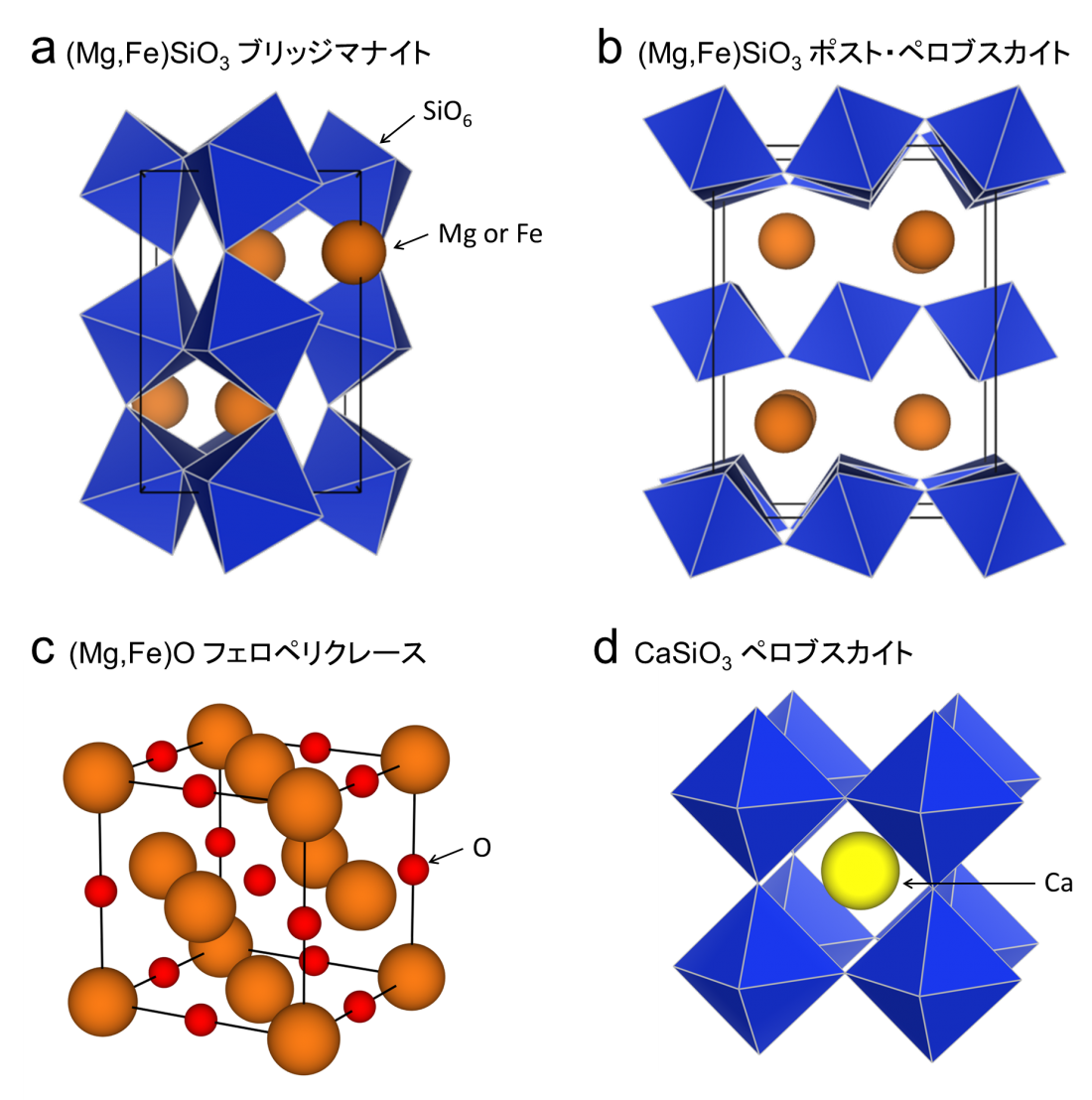Crystal structures of major mineral phases composing the Earth’s deep mantle, (Mg,Fe)SiO3 bridgmanite (Brg), its high-pressure phase post-perovskite (PPv), CaSiO3 perovskite, and (Mg,Fe)O ferropericlase
Recent progress in theoretical mineral physics based on the ab initio quantum mechanical computation method has been dramatic in conjunction with the rapid advancement of computer technologies. It is now possible to predict stability, elasticity, and transport properties of complex minerals quantitatively with uncertainties that are comparable or even smaller than those attached in experimental data. These calculations under in situ high-pressure (P) and high-temperature (T) conditions are of particular interest, since they allow us to construct a priori mineralogical models of the deep Earth. In the present article, we briefly review our recent accomplishments in studying high-P phase relations, elasticity, thermal conductivity and rheological properties of major lower mantle silicate and oxide minerals including (Mg,Fe)SiO3 bridgmanite, its high-pressure form post-perovskite, CaSiO3 perovskite, (Mg,Fe)O ferroplericlase, and some hydrous phases (AlOOH, MgSiO4H2, FeOOH). Our analyses indicate that the pyrolitic composition can be used to describe the Earth’s properties quite well in terms all of densities, and P and S wave velocity. Computations also suggest some new hydrous compounds which could persist down to the deepest mantle and that the post-perovskite phase boundary is the boundary not only of the mineralogy but also of the thermal conductivity.



